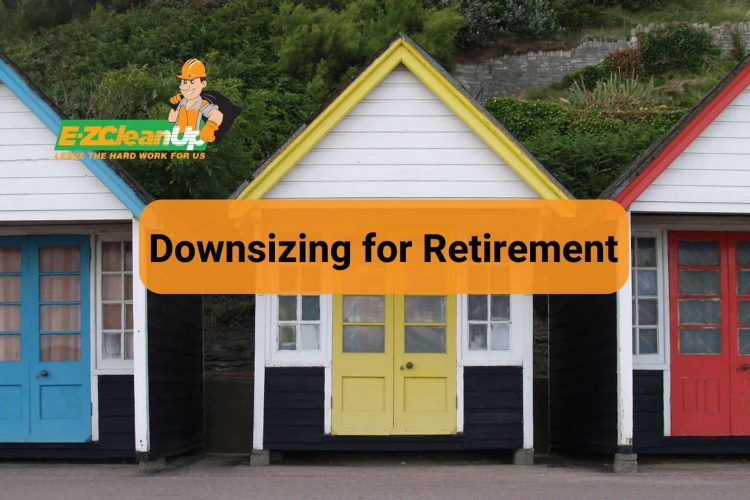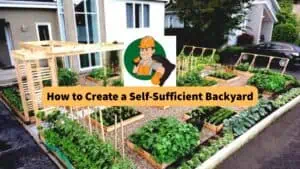When transitioning to retirement living, consider downsizing to manage maintenance and proximity to essential services. This change can save money, though it involves emotional challenges. Exploring various housing options and locations, financial planning, and legal updates are crucial steps.
Learn more about what to do when downsizing for retirement in our guide below.
Evaluating Your Current Housing Situation
When you’re thinking about whether your current home is good for retirement, you should look at a few important things. First, check if your house is easy to get around in. As we get older, climbing stairs might become tough, so a house with everything on one level could be best.
Next, think about how much work your house needs to keep it in good shape. If you’re retired, you might want to spend less time on maintenance. Also, consider how close you are to important places like hospitals, bus stops, and friends. Being nearby can make life easier and more enjoyable as you age.

Can Downsizing Save You Money?
Moving to a smaller home might be a smart money move, especially if your current place has gone up in value over the years. Selling your big house could give you a nice chunk of cash to help pay for everyday expenses or fun activities in retirement.
Plus, a smaller place usually means lower bills for things like heating, taxes, and fixing stuff, which can make your retirement savings last longer.
Understanding the Emotional Side of Moving
Deciding to move out of a home where you’ve lived for years can be really hard emotionally. That place isn’t just walls and a roof—it’s where a lot of your life’s big moments happened. It’s important to recognize that it’s okay to feel sad about it.
Talking it over with your family can help. They can be part of the decision and help think of ways to keep those special memories alive, like making a photo book or a box of keepsakes.
Moving doesn’t just mean leaving things behind; it can also be a chance to meet new people and do new things, especially if you move to a community with other retirees. This can make the change a bit easier to handle and even exciting.

Choosing a New Home
When choosing your next home for retirement, think about what will make life easier as you grow older. Homes with ramps, no stairs, and safety bars in the bathroom are usually a good choice because they’re easier to move around in.
You’ll also want a place that doesn’t need much upkeep so you can relax more and worry less. Being close to hospitals or clinics is important too, just in case. Many people also like living somewhere they can easily meet friends and do fun activities, so consider areas with community centers or regular social events.
Exploring Housing Options for Retirees
There’s a big range of living situations for retirees, depending on what kind of care and lifestyle you’re looking for. You might like a senior living community with tight security and on-site health services. Or maybe a small condo or a house that’s easy to manage is more your style.
There are also places where you can be more involved in your community, like cooperative housing or fancy apartments with lots of luxury amenities. Knowing all the types of homes available can help you pick one that fits both your needs and your budget.
Choosing the Best Location for Your Retirement
When it’s time to pick a place to live, think about more than just the house. The weather, the cost of living, and how close you are to your family and things like shops or theaters can all make a big difference in how happy you are there.
Some people love the sunshine and lower taxes in places like Florida, while others might prefer a cheaper area that has lots of cultural activities. A smart move is to try living in a new area for a while before you buy, maybe by renting for a few months. This lets you see if you like the community and the lifestyle there before you make a big decision.
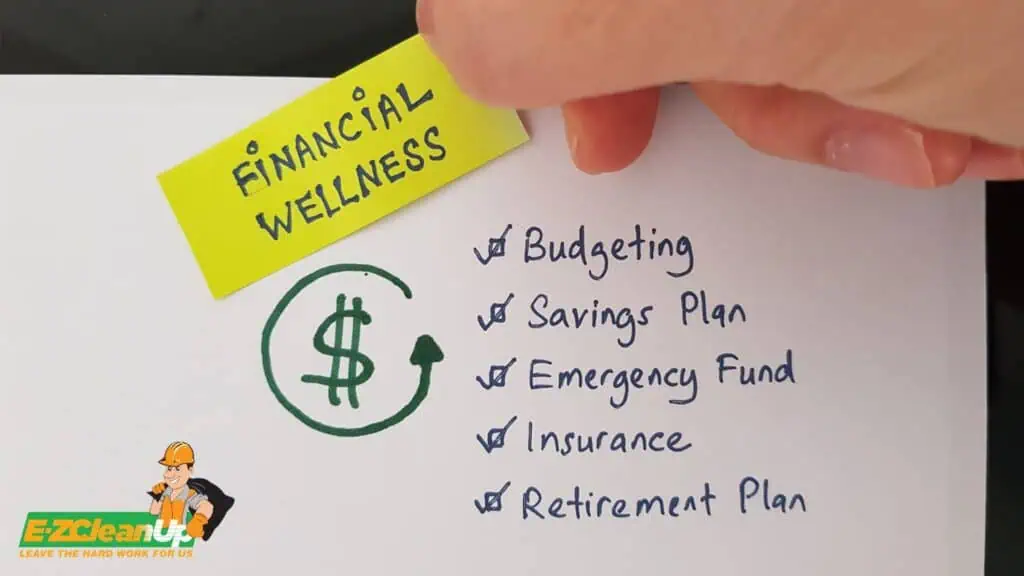
Financial Planning for Downsizing
When you’re thinking about moving to a smaller home, it’s important to plan your budget carefully. This means looking at all the costs you’ll face. You need to think about how much it will cost to sell your current house, like paying for a real estate agent and fixing anything that might increase your home’s sale price.
Then, there are the costs of buying a new home—things like closing fees, moving costs, and any updates you might want to do right away. Certain online tools can help you see how different choices affect your money, so you can make smart decisions.
How Much Can You Save by Downsizing?
Downsizing can help cut down on your living costs, which means more money in your pocket. You might save on big bills like your mortgage, property taxes, and home insurance. Not to mention, a smaller home usually costs less to keep up.
Moving to a cheaper area can also free up a lot of cash. It’s key to carefully compare the costs of your old home and the new one to make sure you really will save money. This way, you can plan better for your retirement years or have more to spend on things you enjoy.
What to Think About When Selling Your Home
Selling your house is a big deal, and you want to do it right. It’s crucial to be realistic about how much your home is worth. The market can change, and you don’t want to expect too much and end up disappointed.
Talking to a few different real estate agents to get their take on your home’s value can help you set a good price. They’ll compare your home to similar ones that have sold recently. Also, don’t forget about taxes—things like capital gains exemptions can affect your budget. Always consider the timing of the sale to align with market conditions that favor sellers.
Preparing to Move
When preparing for downsizing, a strategic approach to decluttering is essential. Start by categorizing your items into ‘keep’, ‘donate’, ‘sell’, or ‘discard’. This method simplifies the decision-making process and helps in managing the volume of possessions to move.
Focus on decluttering one room at a time. Start with less sentimental areas, like the garage or closets, to avoid feeling overwhelmed. For items that are difficult to part with, consider digitizing them, like photographs or important documents, which reduces physical space and preserves memories.
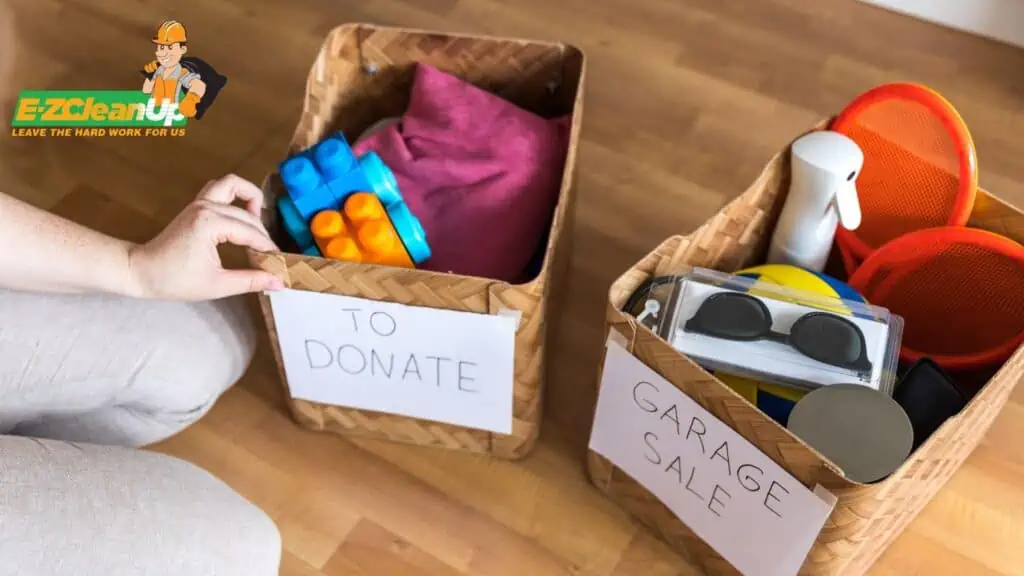
Options for Disposing of Unwanted Items
Once you’ve sorted through your belongings, consider various disposal options. Selling items through garage sales, online platforms like eBay or Facebook Marketplace, or consignment stores can generate extra funds.
Donating items to charities or giving them away to friends and family can also be fulfilling. For items that are neither sellable nor donatable, proper disposal is necessary to ensure they don’t end up as environmental burdens. Consult local disposal regulations to manage waste responsibly.
Strategies for a Smooth Moving Process
To ensure a smooth transition, it’s crucial to plan meticulously. Start by setting a realistic timeline for your move. Allow sufficient time to address each step without rushing. Hiring professional movers can alleviate much of the physical strain and help protect your belongings during the move.
If budget constraints are a concern, consider rental moving trucks or portable moving containers as cost-effective alternatives. Additionally, keep a detailed inventory of your belongings to track what you have and to simplify unpacking at your new home.
Legal and Administrative Tasks
When downsizing for retirement, it’s essential to update your legal documents to reflect your new living arrangements. This includes revising your will, trust, and powers of attorney to ensure they align with your current situation and the laws of your new state.
Changes in your living situation can significantly affect the legal standing of these documents, especially if you move across state lines, where legal requirements can differ notably.
Addressing Changes in State Residency and Taxes
Relocating to a new state also means dealing with changes in state residency status, which can affect your tax obligations. It’s important to understand the tax implications in your new state, including estate, inheritance, and income taxes.

Consulting with a tax advisor to review these changes is crucial to ensure you are compliant with local tax laws and to explore potential tax benefits or obligations associated with your new residence.
Ensuring All Utility and Service Changes are Managed
Finally, make sure to manage all necessary utility and service changes. This involves transferring or setting up new services for electricity, water, gas, internet, and more. It’s also a good time to update addresses for bank accounts, subscriptions, and other services to ensure continuity and avoid any disruptions in service or communication.

Settling Into Your New Community
Adapting to a smaller living space requires a strategic approach to make the most of the available area. Utilize multi-functional furniture and vertical storage solutions to maximize space.
Keeping the decor simple and the layout open can help create a feeling of spaciousness. Embrace the benefits of a smaller home, such as lower maintenance and energy costs, which can lead to a more sustainable lifestyle.
Integrating into a New Community or Neighborhood
Start by engaging with neighbors and participating in local events, which can provide a sense of belonging and community connection. Join local clubs or groups that align with your interests, and don’t hesitate to volunteer.
Utilizing Local Resources and Services for Retirees
Take advantage of local resources and services designed to enhance the quality of life for retirees. Many communities offer senior-specific programs, including educational classes, recreational activities, and special support services.
Familiarize yourself with healthcare facilities, community centers, and public services like libraries and parks. These resources can greatly enhance your daily life and provide essential support when needed.
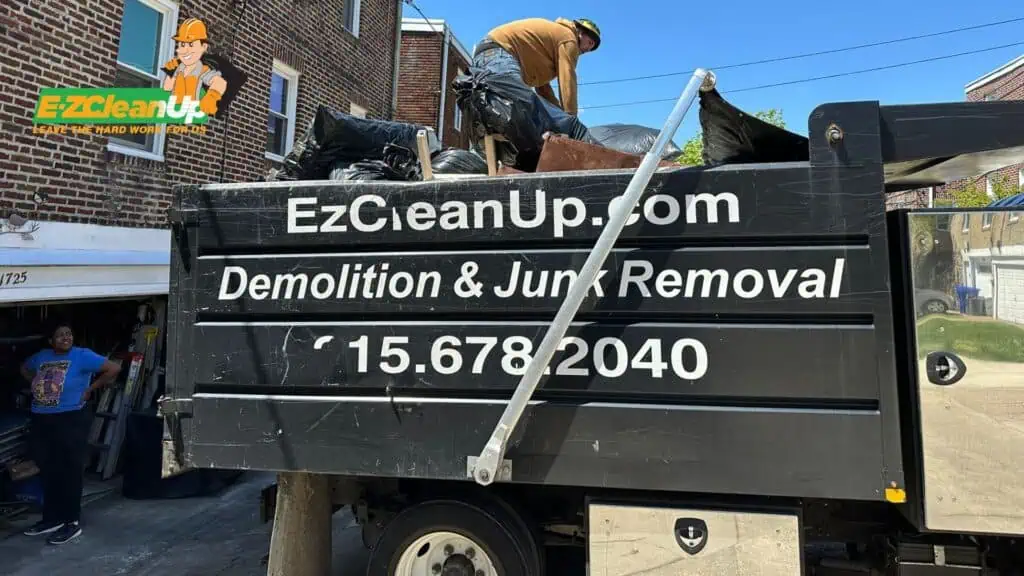
EZ Does It: Streamlining Your Retirement Plans
As you downsize for retirement, the challenge isn’t just finding the right home but also dealing with what’s left behind. Sorting, disposing of, or donating possessions can be a challenging task.
EZ CleanUp provides tailored services to help retirees manage this transition smoothly. Our expert team can handle everything from removing old furniture to clearing out entire properties. We ensure that your move is as stress-free as possible.
Call us for a clean start in your new home.

